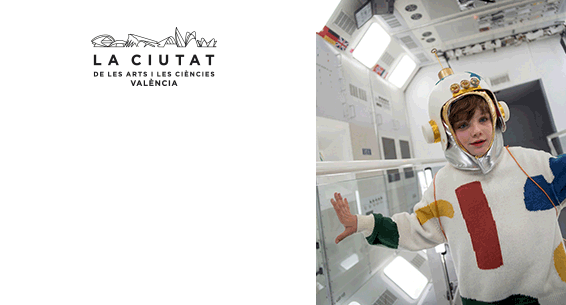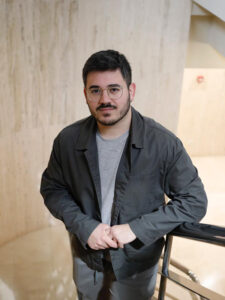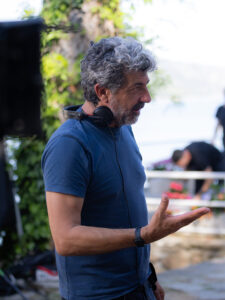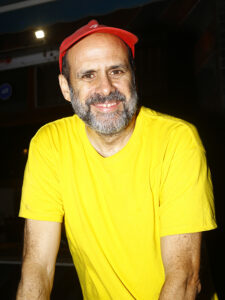
Héctor is a young man who lives in a juvenile center due to several robberies.. It's not the first time he's ended up in that place.. On every occasion, Héctor promises the judges that he will not do it again, something that never fulfills. However, this time there is a difference: Héctor is about to turn eighteen., which implies that, the next time you commit a crime, will end up in a real prison. Under these circumstances, Héctor admits to being integrated into an adaptation program with dogs. Héctor becomes attached to one of the animals until he discovers that it has been put up for adoption., which causes the young man to plan his escape from the center to look for him. The escape ends successfully, but that's where your problems only begin. Determined to find the animal, Héctor embarks on a journey with his brother, the one he convinces to help him on the mission and with whom he will begin a journey of self-discovery that will bring them together again after a long time..
With these few elements, the director Daniel Sánchez Arévalo has built, con Seventeen, a small story that tells us about many things: of the family, of the commitments we make in life and, above all, of the need we all have to be given another chance to correct our mistakes. We were chatting with Sánchez Arévalo a few moments before his presentation of the film, yesterday tuesday, at the Valencia Film Library. If you were not able to attend the session, Seventeen It is right now in all the shopping malls in our city.

after watching the movie, it gives me the impression, given your background, that you have become more serious.
Yeah, I wanted to make a more intimate film, get away from comedy. Bueno, It's not really getting away from comedy., is finding a balance, a more naturalistic balance between drama and comedy in which everything was more in harmony, to melt more naturally. Meet me a little halfway.
I was going to ask you later, but since you're talking about comedy, I tell you. And it is that, when humor seems to be watched by so many eyes (because there are limits to humor), When watching your film I was wondering to what extent you might feel self-conscious when writing..
No, not at all. Yes, it seems worrying to me to put limits on humor.. It's something that makes me very uncomfortable because it can come close to outright censorship.. It is this wave of political correctness that devastates us and depersonalizes us., and what makes us lose our essence, something of the Spanish idiosyncrasy of knowing how to laugh at ourselves. I am very against it and it alerts me a lot, and it worries me, like all those who tell stories, whether humor or drama. In this sense, by the type of story, what I was looking for was to have more with less, try to cook this movie with fewer ingredients. I was obsessed with keeping it simple., which, paradoxically, For me it is more complicated because, until now, in my movies there were many plots, many characters, intersecting plot lines, that go in parallel, etc. No, here there are only two brothers and one story. Then I also wanted the film to be down to earth at all times.. At all levels, from the script, the interpretations, the photograph, the music... That affects decision-making such as the fact that the camera was always touching the ground, and not succumb to the wonderful landscapes of Cantabria with drones or helicopters. I'm going to see everything from the ground, touching land.

In this sense, I was struck by the fact that you have produced a film that is quite dark in terms of tones., whether in photography, for the spaces you portray or even in the locker room. We could say that Seventeen It is a duller film if we oppose it, For example, a Cousins, more colorful and bright, with a different range of colors. To what extent is it deliberate?
Yeah, Yeah, Yeah. Even though it was filmed in Cantabria, is at the antipodes of Cousins regarding intentions. Cousins It was an exercise in making a comedy from start to finish., something that was difficult for me because, same as [in the drama] humor and comedy sneak in unintentionally, the drama sneaks in too [in comedy]. not here, For me it had to be a film closer to drama than comedy, more in line with darkbluealmostblack. That is to say, there was a need to return to the origins. What I like is to mix comedy and drama. My greatest ambition as a filmmaker is to improve at the craft of mixing comedy and drama, but here I wanted everything to be more sober. The most autumnal light (We filmed between September and October), that everything had a very naturalistic appearance, no chromatic games or luminosity. Cousins It's a summer movie, and this is a fall movie and I wanted it to be noticed.
Well it shows. In the film, family relationships are once again the axis of the story, even if it is a broken family. Is it a question you come back to intuitively, accidentally, or you feel especially interested in it?
I am always interested in what surrounds me, the things that move us all, the things that excite us, they distress us, they make us happy. It is true that we live in a world full of catastrophes, but what affects us most is what happens to your brother, or your son or your father. That is what mobilizes us in an immediate and categorical way.. So, how I like to talk about what is close, of that perimeter that surrounds a living being, the epicenter of that is the family. I guess there is a need in me to be inquiring about that all the time., always starting from very unstructured situations, as you say, of family units that are almost far from being, of two brothers who have not been just that for a long time, siblings, and then try to reconfigure that puzzle. My producer told me many years ago: Dani, is that you are a pessimist-optimist. You take some pretty dramatic source material and then you go looking for a way to save your characters., to get them out of the well. And it's true that that's kind of what I do., search for the light, not only at the end of the road, but also along the way. For example, on that first night that the brothers spend together and, suddenly, based on burps, they connect a little. There you begin to see glimpses of what they were.

In your cinema there is a vindication of the everyday, until that point, we could say, almost eschatological, of the burp you mention. That is something that seems to have been forgotten by a certain cinema: seek the essence of everyday life to tell stories. Is it a conscious demand of yours or is it something that arises in your writing??
Notice, For example, The burping thing was something that came up during the filming itself.. Ismael's character belched naturally and suddenly the other actor imitated him. So, I saw that there was a dialogue (laughter) and I told myself, Let's explore this a little more.. But if, It's that obsession I had to make a fiction that was very close, very real and believable. It's the way we brothers communicate, the colleagues, often based on eschatological elements that provoke a lot of laughter. I didn't want to run away from that. (laughter), I wanted to hug him because that makes everything more recognizable, more real.
Another important theme in your cinema that is here again is the question of making important decisions and moving into adulthood.. One way or another, you always return to that terrain. I don't know if it's just that you don't want to address issues that affect adults because they seem so horrible to you and you throw it away., Or is it something that also attracts you unconsciously in your stories?.
I like to push the characters to the limit, in the abyss of making a decision that can take you one way or another. It is that turning point in which the wheel of life stops and you have to rethink if you are doing what you want., if you are with the person you love, that point where you have to search within yourself to undo a series of knots and be able to move forward. And in the specific case of Seventeen, One of the elements that pushed me to make this film was discovering (and leave me a little strange) that if you commit a crime one minute before turning eighteen the repercussions are different than if you do it just one second after. I thought, is this like that? So millimetric? and they told me, Yeah, it's like that. You have to put up a barrier, it has to be somewhere, well it's there. The movie is called Seventeen, but it could be called Eighteen because the character is in that limbo, at that limit where your life can change forever.

darkbluealmostblack…Almosteighteen.
That would have been fucking cool: sixteennearlyeighteen (laughter)…seventeennearlyeight.
Correct me if I'm wrong, but it seems to me that for the first time in your cinema you deal with themes or issues that are of a social order. We were talking about a family that is unstructured, but also that it is almost on the margin. Evidently, They are not doing well financially. Is it an environment that you know or have you documented yourself about it?? How does this story reach you??
Well, actually it's about noticing, to look, is breathing, is to walk through the areas where the film takes place. I am a person who is constantly observing. I like to be on the street a lot and listen to people, be very attached to life at all levels. sometimes I see, even, save me. Wanna see what people see, I want to hear what people hear. And indeed, I am not nor have I been in a situation similar to that of these characters., But I think I can imagine what it might be like to live in a broken family., [two brothers] who have grown up without parents, with a grandmother who later gets sick, assuming responsibilities that do not concern you, your own internal conflicts, etc. From there, obviously, fiction enters, but trying, that the entire initial base, the first 15 o 20 minutes, They were very close to reality, and that they had a certain vocation, even, of social dinners. In those first bars I wanted there to be something of that social cinema that I like so much and that Ken Loach makes, Fernando Leon, people who know how to play, talk about the very close, but with feeling.

You now coincide on the billboard with him Joker (laughter)
(laughter)
… a film that addresses the issue of mental illness. Hector, your protagonist, It also has a problem that you never quite reveal., but it is present in the film. How has your approach to this world been??
Well, this parallel with the Joker is curious because he is a guy who is not treated properly., that society ignores him and turns him into a monster, into a super-villain. Here I wanted to talk about these kids who obviously have something wrong with them., who have a problem that is not diagnosed and about which it is said, how strange it is, that geek and who suffer social exclusion, They withdraw a lot into themselves and no one cares about caring for them or providing them with psychological help so that they can connect with society and integrate better.. We did a lot of research. I have to tell you that what I have worked for, and what I have worked with the actor, which has also made a great immersion, yes it has a name, but we decided not to give it to him because the majority of kids who suffer from this disorder are not diagnosed and have a bad time.. It is clear that people detect it and I like that they detect it. But, above all, so that, then, what we represented did not become a representation of a representation, It wasn't based on a movie character., but it was based on things we have seen, that we have felt, what we have heard.

But, Was your intention for leaving that aside to not focus the viewer on a certain disease or was there another reason??
Yeah, I didn't want the synopsis to say “this is a kid who has this type of disorder and what happens to him”. No, he is a problematic kid, of which we will later discover what happens to him, but I didn't want to focus on that because the movie isn't about that either..
There is something that has caught my attention and that is that the character finds part of his path in the relationship he has with an animal., a dog, but I have the impression that, in the end, you superimpose human relationships on that question of the relationship with animals. And I was going to tell you that this today is almost subversive., (laughter)
(laughter) Total.
…I don't know what you think...
No, no, Of course. It's true that it looks like he's a kid looking for his dog., but deep down he is looking for the “dog” inside his brother. This is a story of abandoned dogs. Héctor and his brother are two abandoned dogs looking for adoption. And indeed, somehow, The search for this dog is still a McGuffin, an excuse to talk about that emotional journey of reconnecting with your brother, of trying to destroy that physical and emotional barrier that exists between the two.

I don't know if it's because it's in fashion or if it's of particular interest to you., but the film also addresses the problems of rural space, another of the protagonists of the story.
Yeah, bueno. Trying a message a priori seems like a huge mistake to me.. To go global you have to start small.. When you are filming or writing you cannot try to put the emphasis on this or that because the most likely thing is that you will screw up and depersonalize it.. But it is true that during this process there was something that has to do with the depopulation of rural life in the towns.. The town where the grandmother lived, in Carmona, where we have filmed, in the Cabuérniga valley, It is a wonderful town, but where half of the houses are demolished and where before there were several bars, now there is one, and where there were rural houses or a hotel there is nothing now. And yes, there is something about unconsciously putting a certain focus on how the entire interior of Spain has been falling apart..
Compared to your other films, this is an outdoor movie. What has it meant to you as a challenge when approaching filming??
This is a movie we shot in the fall, in Cantabria, so we decided to embrace time, let ourselves go. in the north, time changes so abruptly and so quickly that it is believable that, in the middle of a sequence, it stops raining and the sun comes out. What we could not expect was that there was a certain uniformity because then we would never have finished. But the most curious and most worrying thing of all is that, even looking for that climate of overcast skies and rain that would help the bittersweet tone of the film, It only rained on us for a day and a half., very little. That makes you even more aware and alarmed about everything that has to do with climate change.. Many times it was cloudy and in the middle of the afternoon the sun came out. Bueno, So we keep rolling, it is what there is. This at the time of the photo made him very distressed and gave him many headaches., but I told him, I am from the north, this is normal, Don't worry. Besides, If someone notices the changes, they don't like the movie. (laughter)

An almost obligatory question has to do with the fact that this is the first time you are working with Netflix as producers.. How has the experience been?? In what sense do you think the platform's entry into Spanish production can change??
Well it has been quite idyllic, especially in two fundamental aspects. The first is the creative, in the sense that they read the script and told me, “mira, we like your way of looking at the world, your way of telling stories, “We really like this story.”, and the only thing they were looking for was to preserve my vision. It was like this to the point of allowing me to propose a casting of unknown faces, with two actors making their first film. And then what, during filming, There is no interference in editing and post-production.. There are some suggestions, but it's like I show you the movie and you tell me what you think. And then another important thing is in the economic aspect, the fact that they understood that, although it was a film in essence and small in spirit, It wasn't necessarily cheap.. What to shoot in Cantabria for seven and a half weeks outdoors, con 50 o 60 team people and many trips, that's not cheap. They did not question this at any time.. Then, at a general level, with the arrival of platforms, no solo Netflix, but the rest of the platforms, I have never seen the industry so busy., with so many projects, in my life. And I think that something has happened that for me is very beautiful and that is that they have put the focus on the creators. They have said, what do we need? Stories. Who has the stories? And they have come directly to the creators understanding that they need stories of different types, that there is no corset or editorial line. My film has little to do with the rest of the Netflix catalog and I think that's wonderful. But just like Coixet, which have also produced it. I think that the more platforms that come, it will be better, because they are going to need more different types of stories. In the end, You are like a large fictional store and you need many departments for people to come and get lost consuming, buying and seeing.
Do you think this will affect the traditional production model in Spain??
To the financing model? I think so, because this film has not required support from the ICAA, that is to say, There has been no need to ask for subsidies nor for other television stations to be behind it.. That is to say, when you watch a spanish movie, at the beginning you see all the sponsorships, They last almost a minute of the number of people you have had to pass the plate to in order to hold a movie. In this case, no. We want to make this movie, It is our production and we finance it. In that sense, it is wonderful, obviously. Besides, You leave room so that the money destined for the ICAA can go to smaller productions or those of people who are just starting out or who have less financial muscle.. That is our ambition, let other people use that money.












